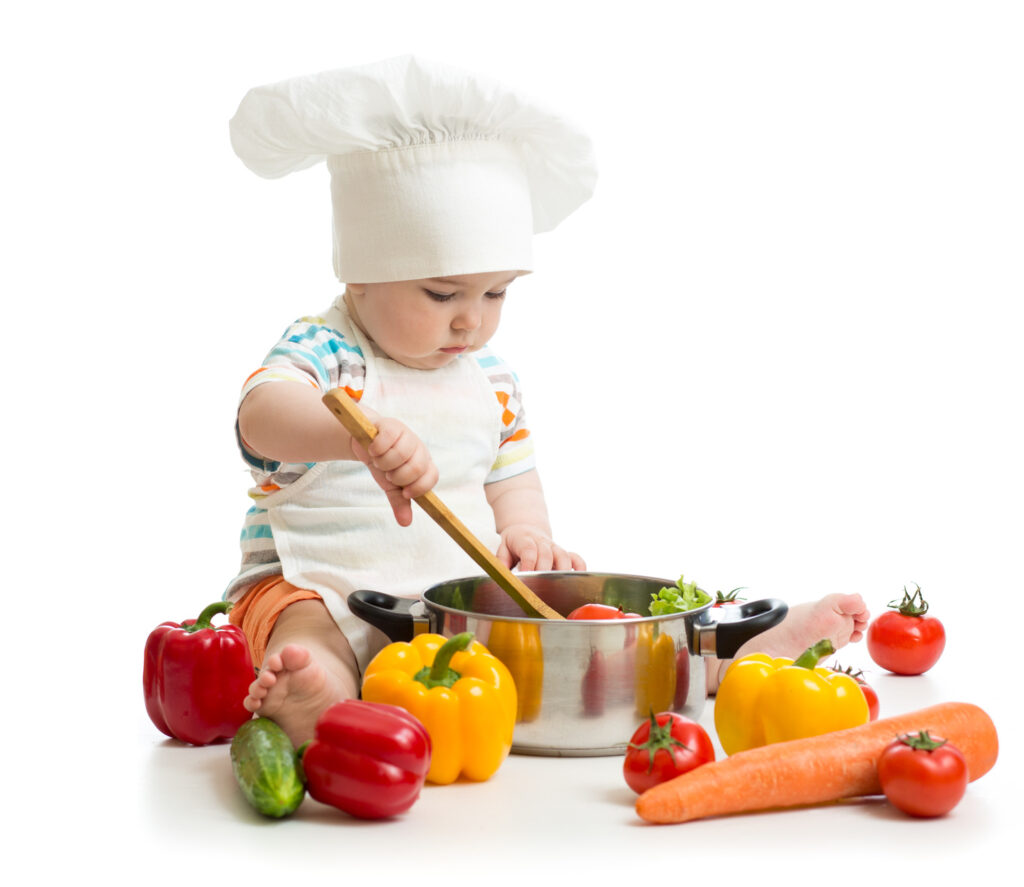Every parent wants to nourish their child with the best of options for their growth and development. We will be sharing Nutrition support and different aspects of dealing with the issues around the WHAT, WHY and HOW of best Nutrition practices for your little one.
Let’s get started with the basics in the following blog. All the best !
How important is it for toddlers to have the right nutrition intake?
Toddlers and pre-schoolers are growing every day and for their optimum physical and mental development, the right nutrition plays an important role. Proper food intake at this course of life not only helps them get the required energy and nutrient intake but also lays the base for healthy eating habits for life. It can sometimes be confusing for parents and carers to know what and how much the child needs to eat. And sometimes, they can also have a tough time feeding if the child happens to be a fussy eater.
Let us start with WHAT is the ideal food they need to consume?
Each day toddlers need three meals and some snacks made up of foods from the four main food groups, in the right balance and in portion sizes exactly right for them. The British Nutrition Foundation recommends the number of servings from the four major groups for preschool children:
- Starchy foods x 5-a-day
- Fruit & vegetables x 5-a-day
- Dairy foods x 3-a-day
- Protein foods x 2-a-day*
Starchy foods such as bread, rice, pasta, cereals, potatoes and yams, provide your toddler with energy, B vitamins, calcium and fibre. Fortified starchy foods, such as fortified breakfast cereals, can also provide iron and, in some cases, vitamin D.
High fibre starchy foods, such as wholemeal pasta and brown rice, should be introduced gradually because toddlers can fill up very easily on these bulky foods and stop eating before they’ve eaten enough energy for their needs.
Fruit and vegetables contain lots of vitamins, minerals and fibre. It’s good to introduce lots of different types from an early age, whether fresh, frozen, canned or dried, so your baby can enjoy new textures and flavours. Try to make sure fruit and vegetables are included in every meal. It might be useful to think about the colours of fruits and vegetables and to offer ‘a rainbow’ of options, selecting those that are purple/blue, orange/yellow, green and brown/white.
Different fruit and vegetables contain different vitamins and minerals, so the more different types your toddler eats, the better.
Dairy: Dairy foods, such as cheese, yoghurt, milk and fromage frais, are a very good source of calcium, protein, fat and vitamins B2 and B12. Full fat varieties are best for toddlers, but from two onwards, semi-skimmed milk can be introduced if they are growing well and eating a healthy, varied diet. Skimmed and 1% milks are not suitable for children under five.
Toddlers need about three servings of dairy foods per day. However, too much of milk intake will affect their intake of other foods. If young children fill up on milk, it makes it difficult for them to get the calories and nutrients they need from a varied diet.
Protein Foods: Children of this age have high requirement of Protein as they are growing and developing rapidly.
This food group includes meat, fish, eggs, nuts, pulses (such as beans, lentils and chick peas) and foods made from pulses (e.g. tofu, dahl and soya mince). These foods provide protein and iron, which are essential for a growing child. In addition, oily fish (e.g. salmon, trout and mackerel) is a rich source of omega-3 fatty acids and a dietary source of vitamin D. Try to serve these protein foods with another food or drink that is rich in vitamin C (e.g. fruit and vegetables) as this will help with iron absorption. Your toddler needs two portions of proteins foods per day, three if they are vegetarian or vegan.
Hydration: It is important that your child is hydrated sufficiently. Less hydration can lead to tiredness and irritability and sometimes result into severe illness if not taken care of. It is a good idea to give plain drinking water as the most served drink in the entire day. Plain milk can be the next best option. Sugary drinks such as fruit squashes, fruit juices, sweetened milks and fizzy drinks can cause tooth decay. Another reason why it is best not to offer these too often so that your child does not develop a strong preference for these.
Apart from these, the NHS suggests that Iron is essential for your child’s health. It comes in 2 forms:
- the iron found in meat and fish, which is easily absorbed by the body
- iron from plant foods, which isn’t as easy for the body to absorb
If your child doesn’t eat meat or fish, they’ll get enough iron if you give them plenty of other iron-rich foods, such as fortified breakfast cereals, dark green vegetables, broad beans and lentils. Children who rely heavily on milk are more likely to lack iron, which can lead to iron-deficiency anaemia. This can affect your child’s physical and mental development. Thus, a balanced diet is essential for their proper growth.
Foods to avoid or limit:
- Sugars – sweet foods and drinks can lead to tooth decay, so these foods should be limited and consumed only at mealtimes.
- Salt – children aged 1 to 3 years should have no more than 2 g of salt (0.8 g sodium) per day to reduce the risk of health problems in later life. Foods prepared at home can be flavoured with herbs, spices or lemon instead of salt. Some foods, such as cheese and meat products, are relatively high in salt so try to check food labels and avoid those which have more than 1.5 g of salt per 100 g (or 0.6 g sodium).
- Raw eggs, Fish high in mercury like Shark, sword fish and Marlin should not be given to young children.
Everything said and done, in spite of planning their meals and preparing different food items for children, they eat what they like and refuse what they don’t. Young children have their preferences and choices developed because of these preferences. Sometimes the type of food preferred or quantity they consume becomes a cause of concern for the parents, and such kids are labelled as ‘Fussy eaters’.
There is evidence to support the effect of food on the mood, which can explain why your child gets hyper after having a sweet or cake.
In the next blog/post we shall be discussing how to deal with these issues and what practical tips can be followed.




